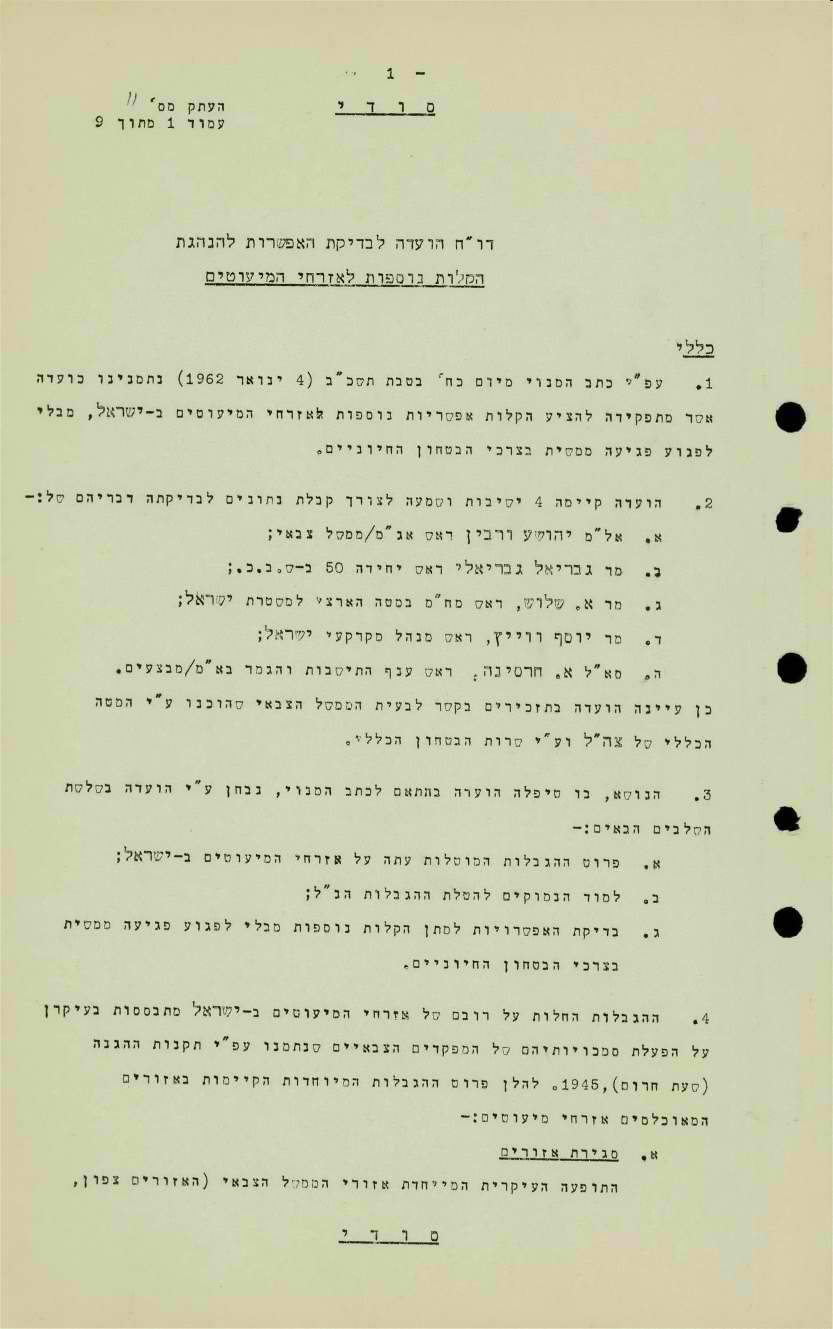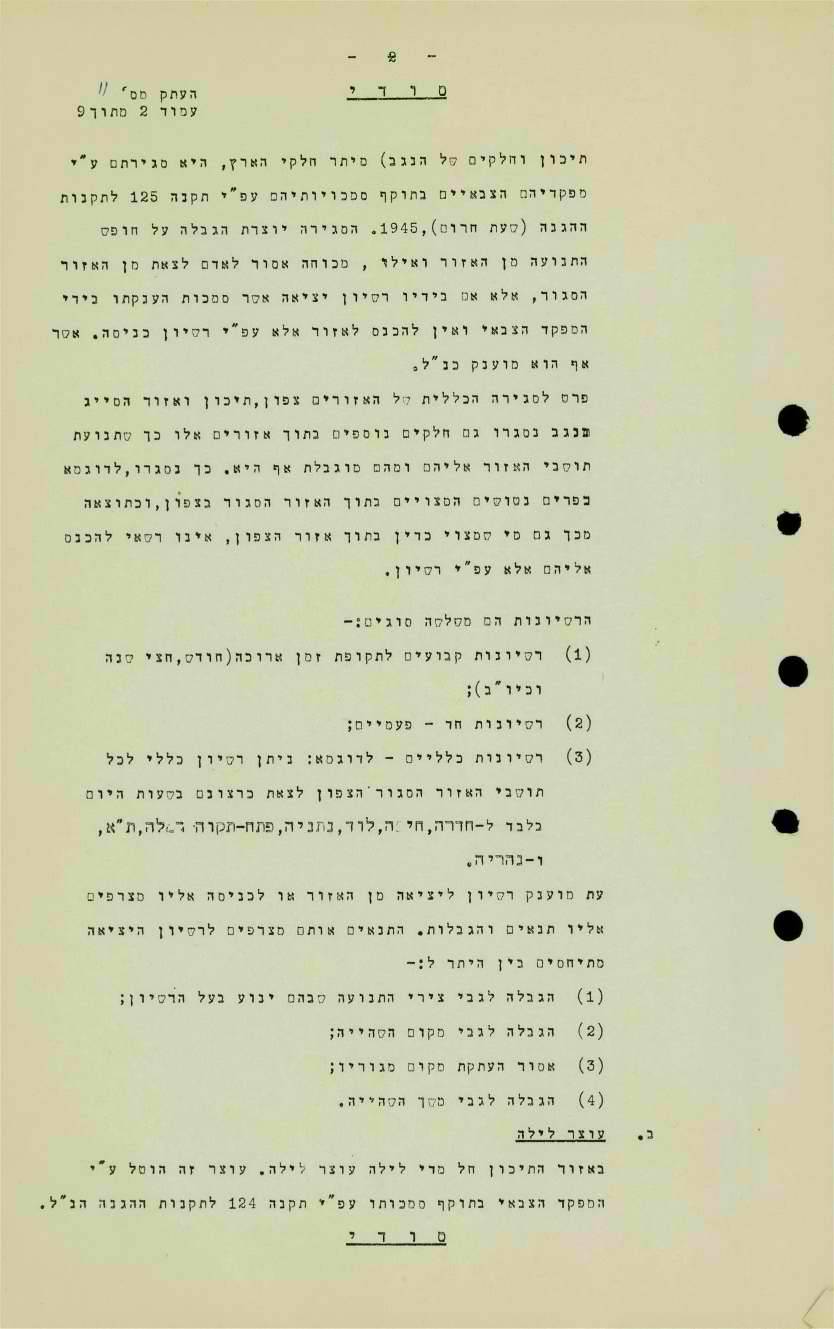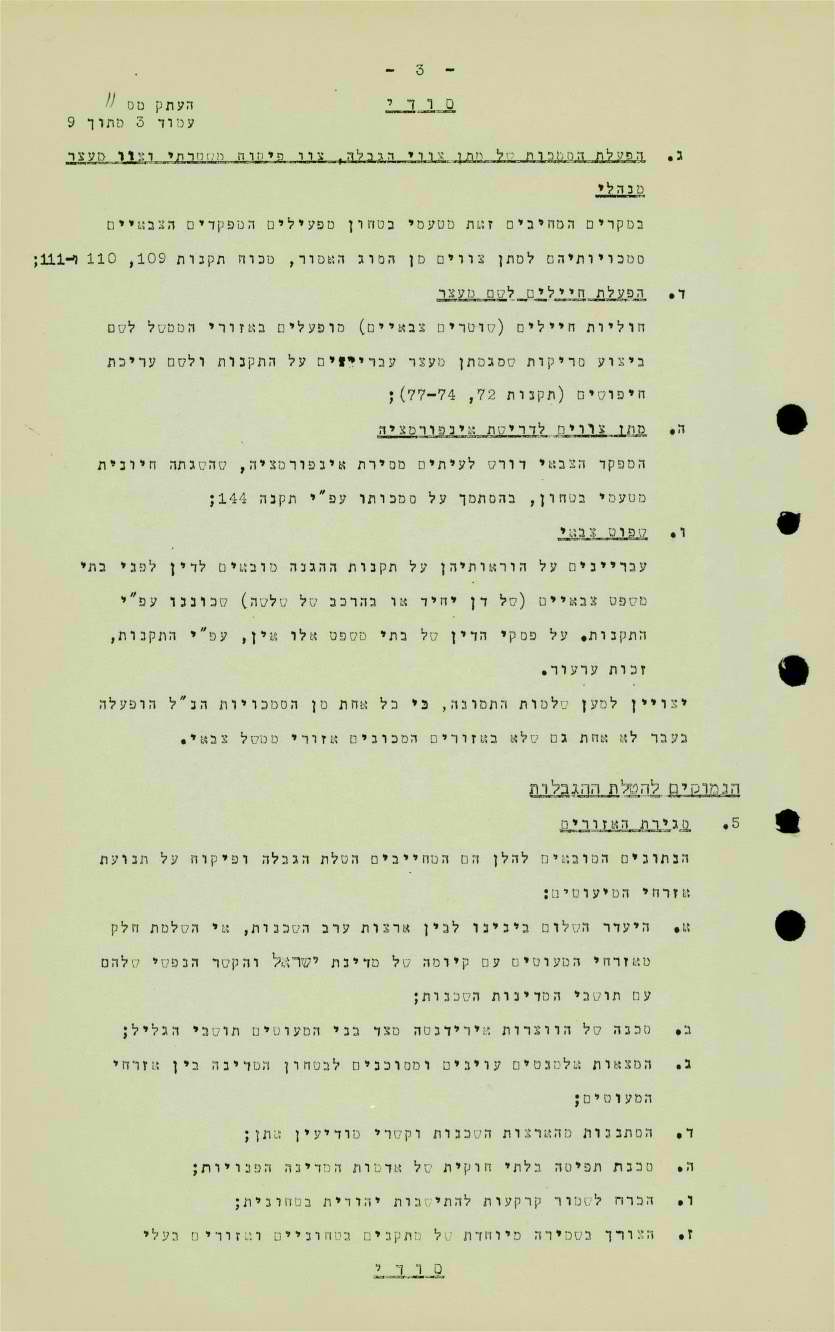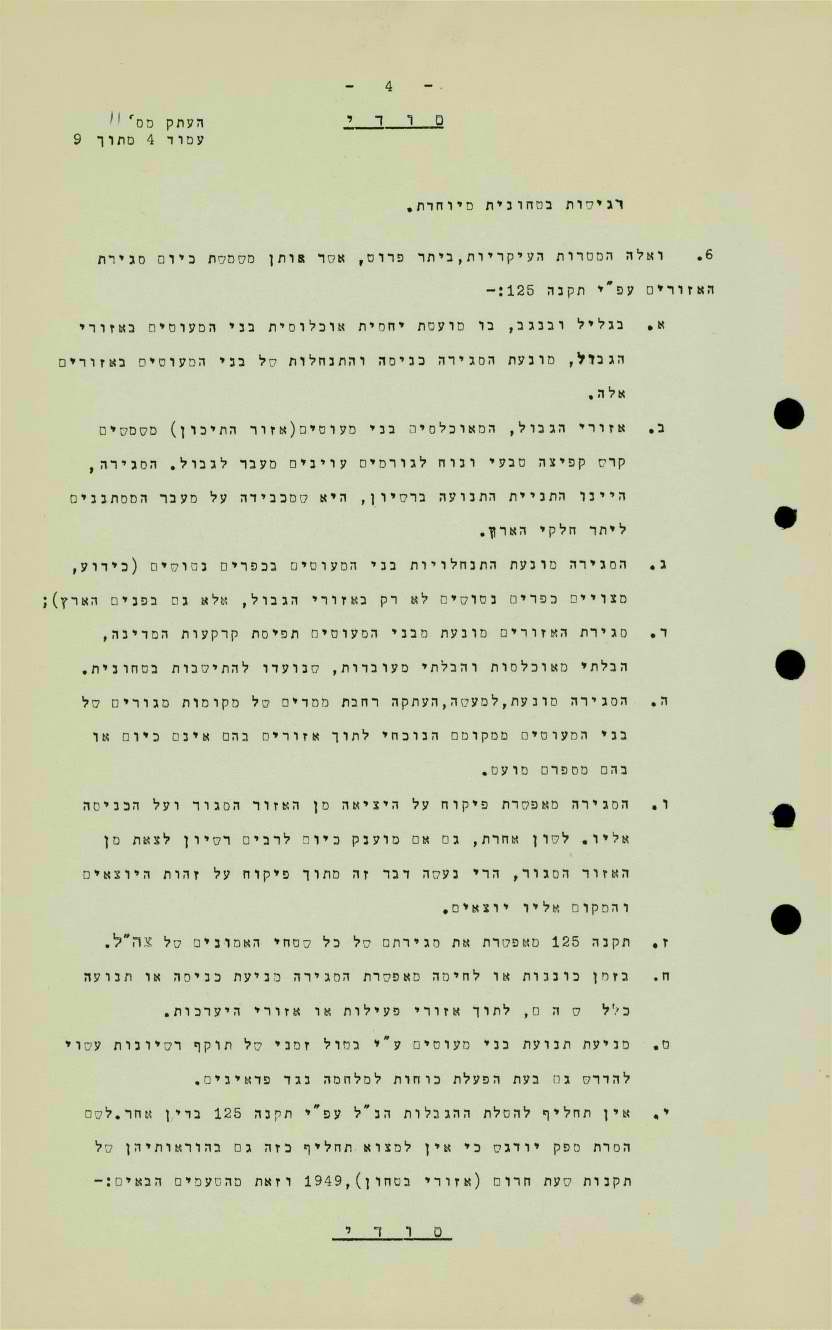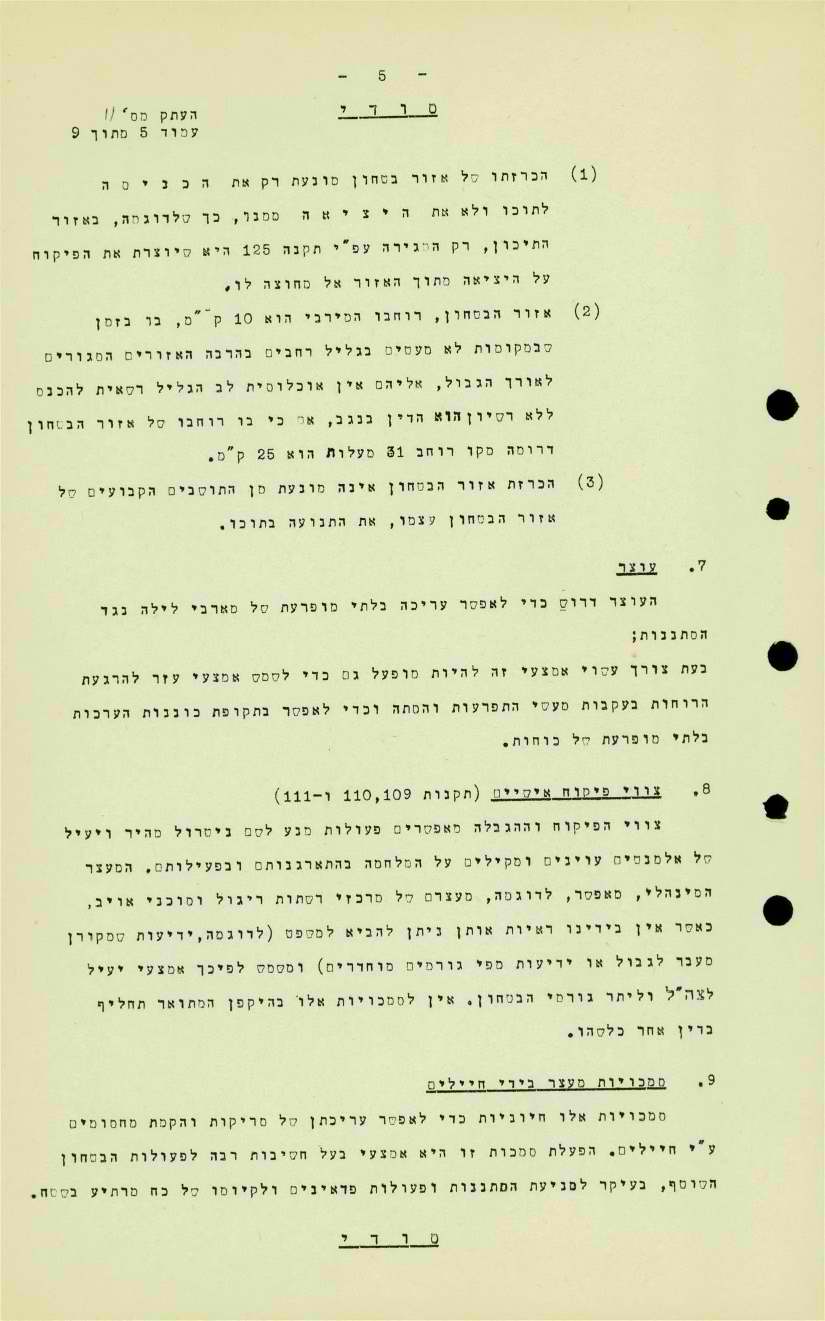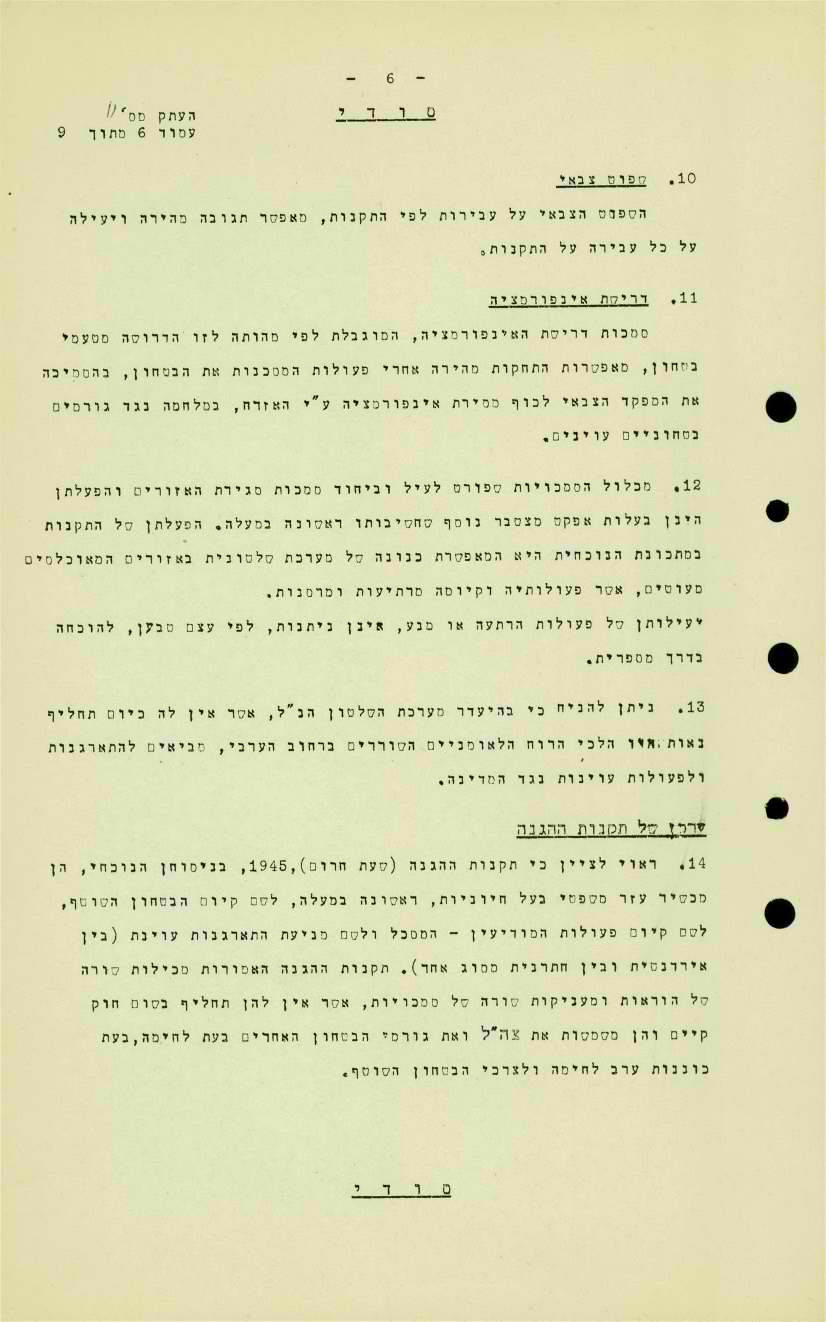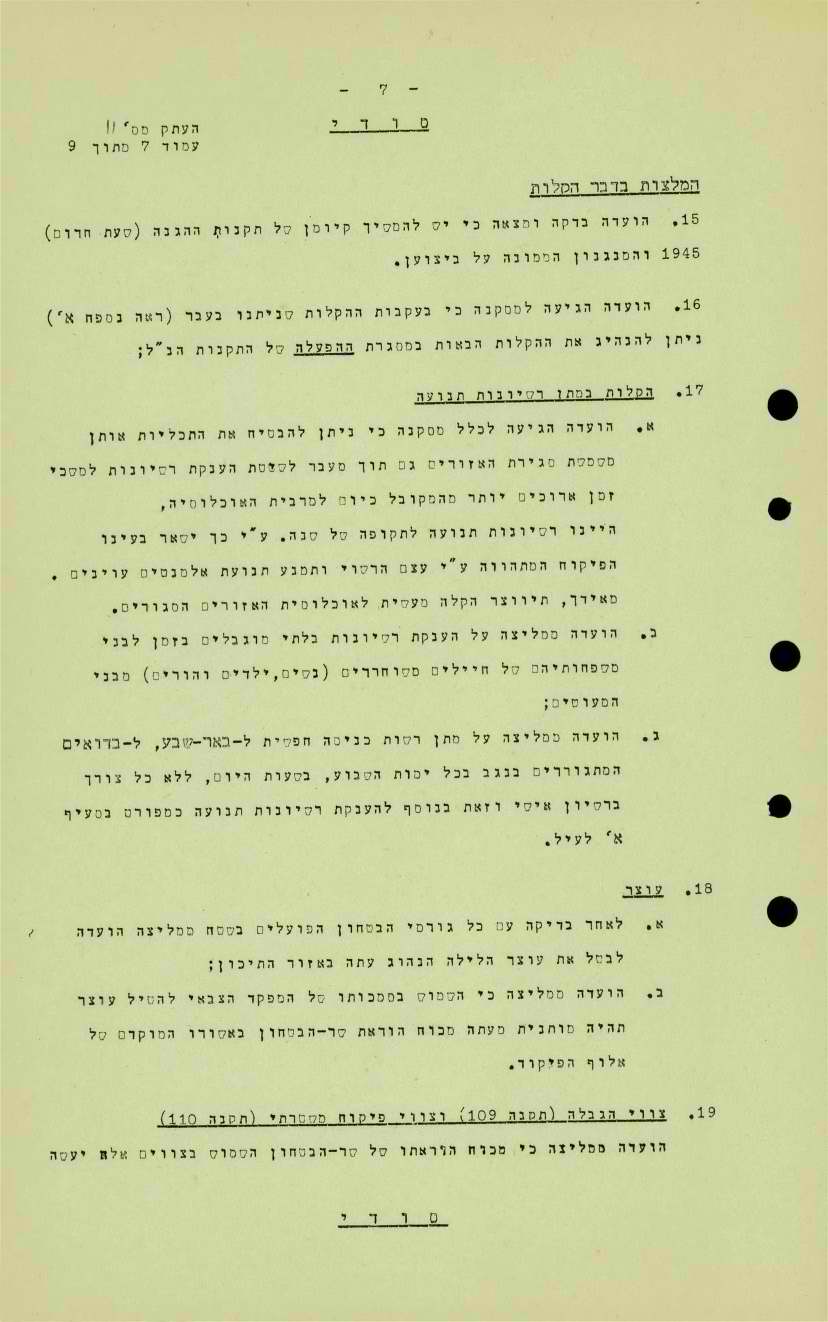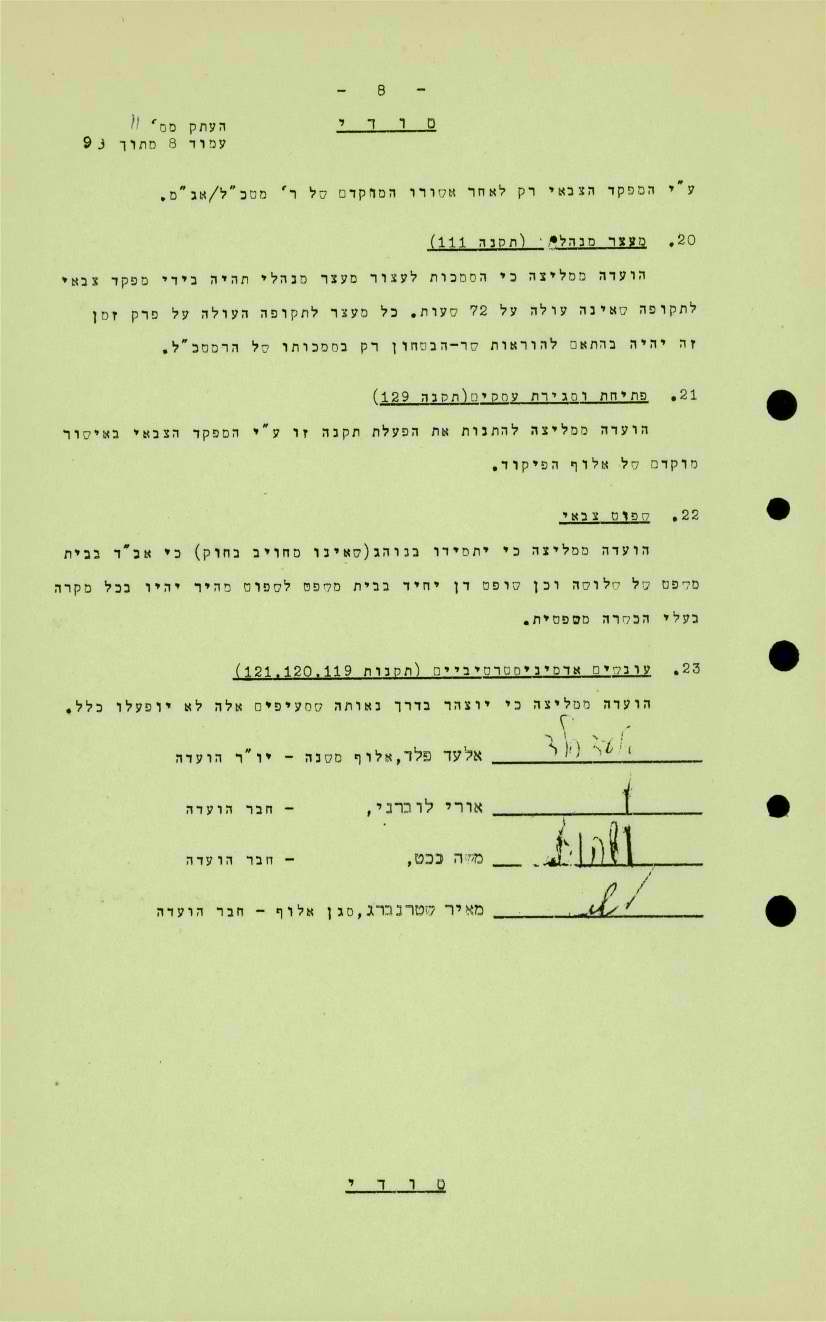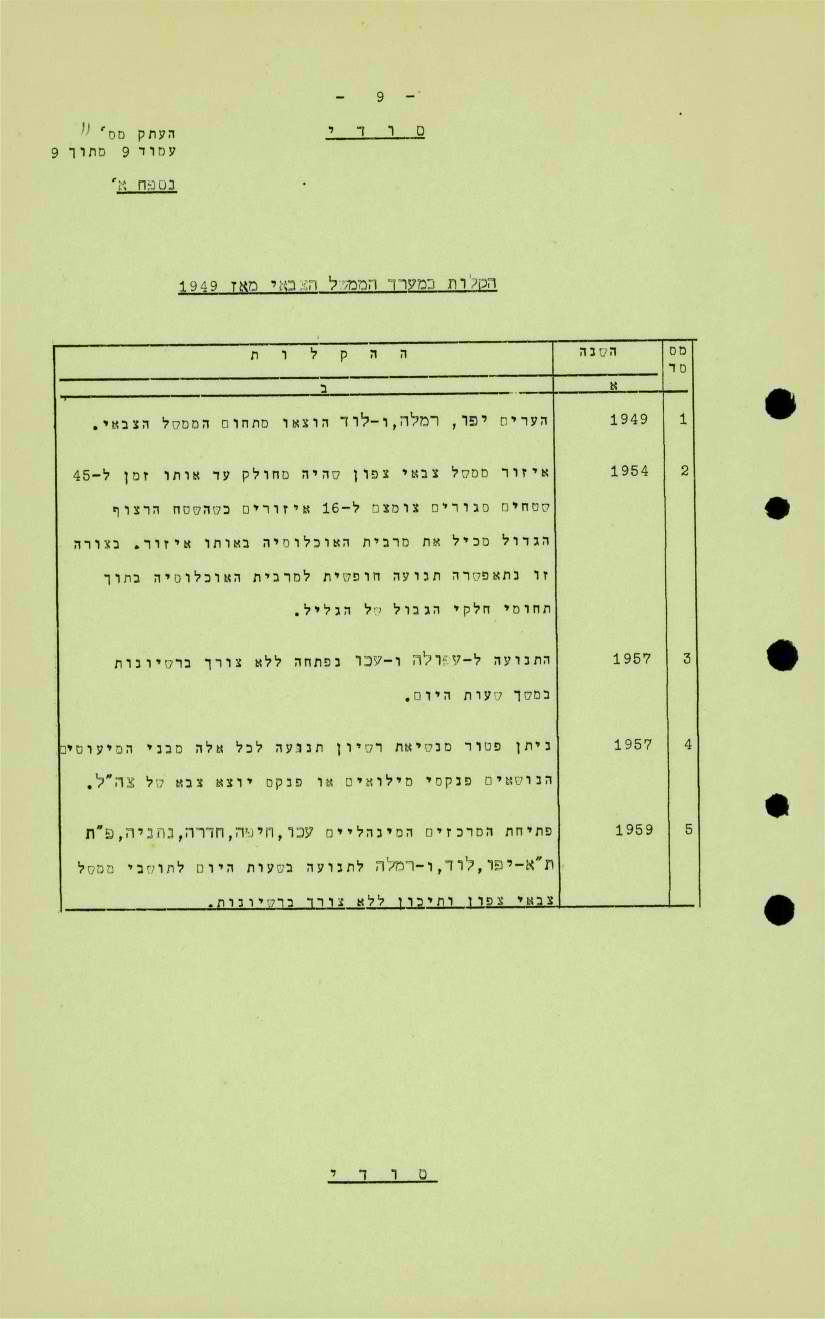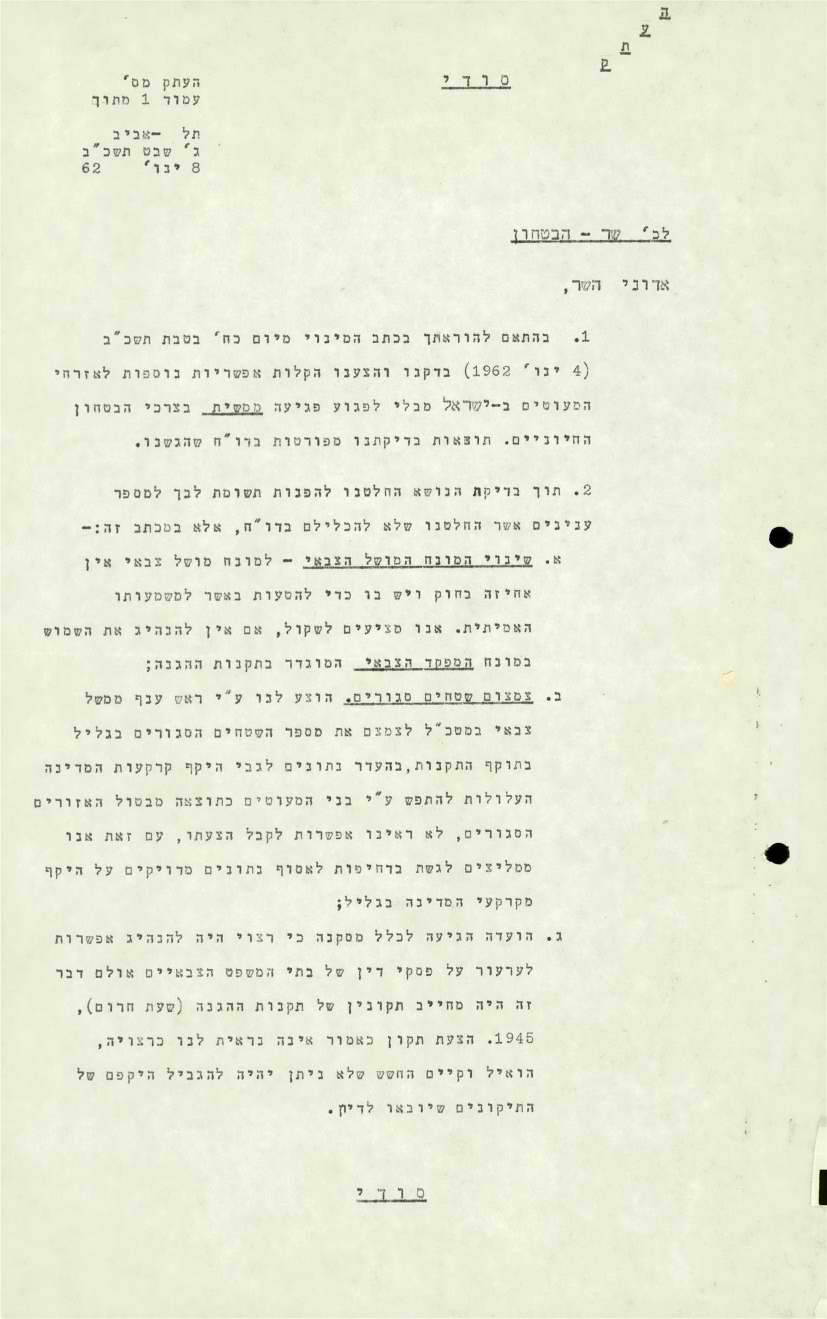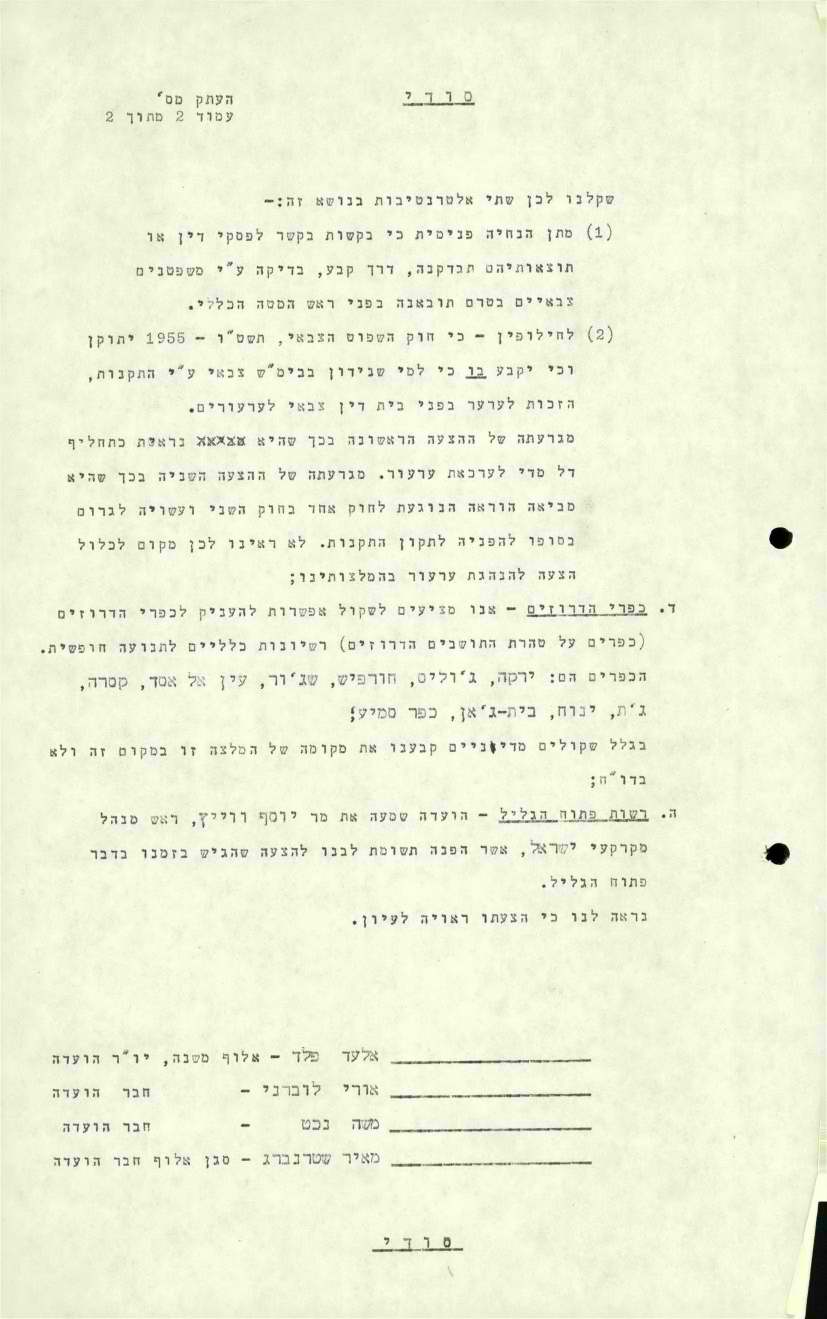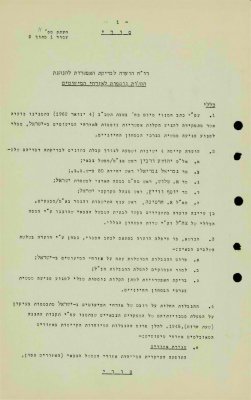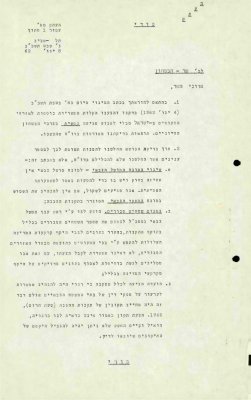In January 1962, amid growing political pressure and criticism inside Israel about the Military Rule, David Ben Gurion appointed a special committee – one of many over the years – tasked with considering whether some of the restrictions imposed on Palestinian citizens of the country could be loosened. The committee’s official report recommended keeping the Defense Regulations, on which the Military Rule was based, in place and introducing minor mitigations to the restrictions. Several additional issues were covered in a personal letter to the prime minister.
On January 4, 1962, during the Military Rule era, Prime Minister David Ben Gurion appointed a special committee to examine whether “further loosening of restrictions can be proposed for citizens from minority groups in Israel without substantive harm to essential security needs” (emphasis in original). The committee was instituted amid growing political opposition to the Military Rule across a wide spectrum of organizations and political parties.
The committee was headed by Colonel Elad Peled, the head of the Operations Directorate. It was given one week to perform its duties. The committee convened for four sessions and after composed an eight-page report that’s the core recommendation was to continue applying the Defense (Emergency) Regulations, which formed the basis for the Military Rule. At the same time, the committee suggested minimal mitigations to the restrictions, such as extending the validity period of the travel permits and giving Bedouin citizens living in the Negev Desert free access to Beersheba. Another suggestion was to cancel the night curfew that had been imposed in the Triangle area since 1949.
Members of the committee submitted the report with a supplementary letter meant for the prime minister’s eyes only. “In the process of reviewing the matter, we have decided to turn your attention to several matters we opted to keep out of the report,” they explained. Among the suggestions committee members reserved for the letter was the possibility of allowing appeals against judgments delivered by military courts – a right denied to citizens living under the Military Rule – as well as giving residents of Druze villages general travel permits that would afford them “free movement.” By way of explaining why these recommendations had not been included in the official report, committee members wrote: “Due to political considerations, we decided this recommendation belongs here [the letter] rather than the report.” Committee members also addressed the possibility of reducing the number areas defined as “closed zones” where permits were required for entry. However, they did say such a step should hinge on a review of “the scope of state-owned land in the Galilee.” In other words, they considered this an issue of real estate, not security.
On February 20, 1962, shortly after the committee submitted its report, the Knesset held a long debate on bills for the revocation of the Military Rule proposed by several parties. One-hundred and fourteen MKs participated in the vote, and the government won by a narrow margin.

